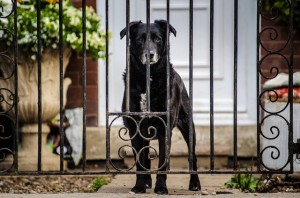Why Is My Older Dog Not Eating?
Generally dogs will eat whatever is offered to them, but sometimes you may find yourself in a situation where your older dog refuses to eat. Knowing the importance of good nutrition to health, it is quite understandable to be worried when your older dog won’t eat. Your dog not eating may be even more worrisome if he or she previously had a healthy appetite.
Your dog not eating may be due to a loss of appetite which may be indicative of a health problem and sometimes it may simply be a refusal occasioned by some other factors which will be discussed in this article.
Reasons Your Older Dog May Not Be Eating and Help Tips
Health Issues: Like you would find in humans, an underlying health conditions may result in loss of appetite. If you notice any negative change in your dog’s response to food, you should first consider checking with your vet in order to eliminate the possibility of an illness. This is even more important if your dog exhibits other symptoms such as weight loss or diarrhea in addition to the feeding problem. There are some serious health conditions that can be the cause of this, so make sure you get it checked out!
If your dog was recently vaccinated, he or she might experience a loss of appetite as a side effect but these should cease within a few days. Check with your vet to be sure.
Pickiness: If the feeding problem isn’t health-related, then you may have a behavior problem to deal with. First, you need to find out the reason why your dog is picky.
Your dog may become fussy about eating if you have the habit of feeding him extra treats regularly outside of meal times. This can also happen if he gets fed scraps off the dining table by you or others. What your dog is doing here is refusing to eat his own food and instead waiting until the treats come along.
If this is the situation, you will need to cut out the treats and make your dog conform to a regular feeding schedule. This might be resisted initially, but if you keep at it, your dog will eventually come around and realize that’s the way to go. Make an occasion out of meal times and applaud or reward your pets when they eat their own food.
In some instances, your dog may actually enjoy your fussiness or the attention he gets whenever he refuses to eat. Fussiness can reinforce bad behavior. Always remain calm and relaxed when dealing with dog behavior issues.
Change: If your dog is not eating, it may be due to a recent change of accommodation or location. When in unfamiliar surroundings, some dogs may become uncomfortable or nervous. With reassurance and encouragement, this should pass within a few days.
Changes in a dog’s food may also result in a loss of interest in food. Use a slow and gradual approach when introducing a new type of food to your dog.
The Food: It is possible that your dog’s food has stayed open for too long and no longer tastes the same. You wouldn’t eat stale or spoilt food neither would your dog. To be absolutely sure that this is the issue, feed your dog from another pack.

